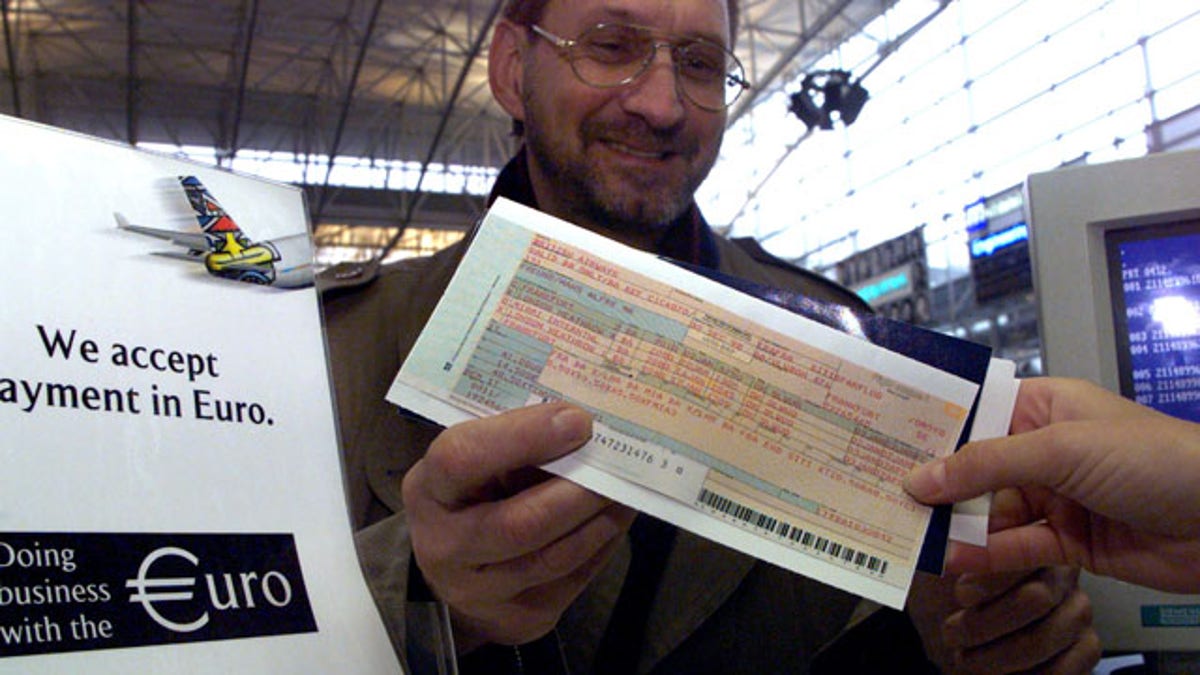
Ludwig Hamburger, a passenger on British Airways, purchases the first airline ticket sold by the British airline in the new single currency at Frankfurt's Rhine-Main-Airport early January 1. The euro was born on January 1 and Frankfurt, home to the European Central Bank, is planning a weekend of festivities to mark the occasion. ??» (Reuters)
Travelers are fed up with the fees they face when flying and some are even finding alternative routes to get to their destinations rather than pay up, according to a new survey.
According to TripAdvisor's recent Air Travel Survey, 46% of respondents said checked baggage fees are the most annoying airline fee, followed by seat selection fees (24%) and carry-on baggage fees (18%). In addition, 56% of respondents said they regularly carry on their bags to avoid additional fees, and 52% said they are more likely to only pack carry-on bags when they fly this year, due to rising checked baggage fees.
The survey was conducted among more than 2,000 U.S. air travelers. One-third of respondents said as a result of rising airfares they are planning to drive for one or more of their trips in 2011, when they would have previously flown.
Brian Saltzburg, general manager of TripAdvisor Flights, said the airline industry recently instituted its 11th consecutive fare increase, and carriers don't have plans to reverse the trend anytime soon.
"Consumers are continuing to book, and with that, prices have gone through the roof," Saltzburg said. "But those who are price-sensitive are making other arrangements."
With 46% of travelers reporting that the checked baggage fee is most annoying to them, Saltzburg said he believes there is a lot of consumer resentment going on.
"Consumers are just fed up with the charges," he said. "The reality is that the fees are here to stay. Carriers realize that there are fed up customers, but they are willing to pay for fees and services."
Although airport security had previously been a hot-button issue earlier in the year, mainly due to the controversial TSA pat-down and screening process, 51% of travelers said they have been comfortable all along with airport security. Of the two security screening methods, 82% of travelers said they would opt for a full-body scan over a full-body pat down.
Travelers may not be happy about the fees they face, but are realistic about their staying power.
"Consumers are becoming aware that if it's important to them, they will have to pay for it," he said.
